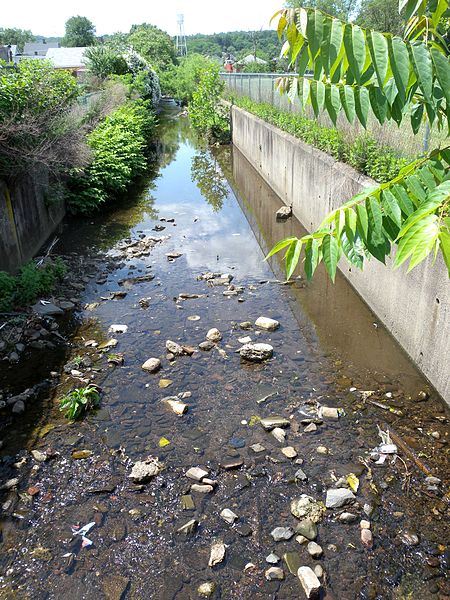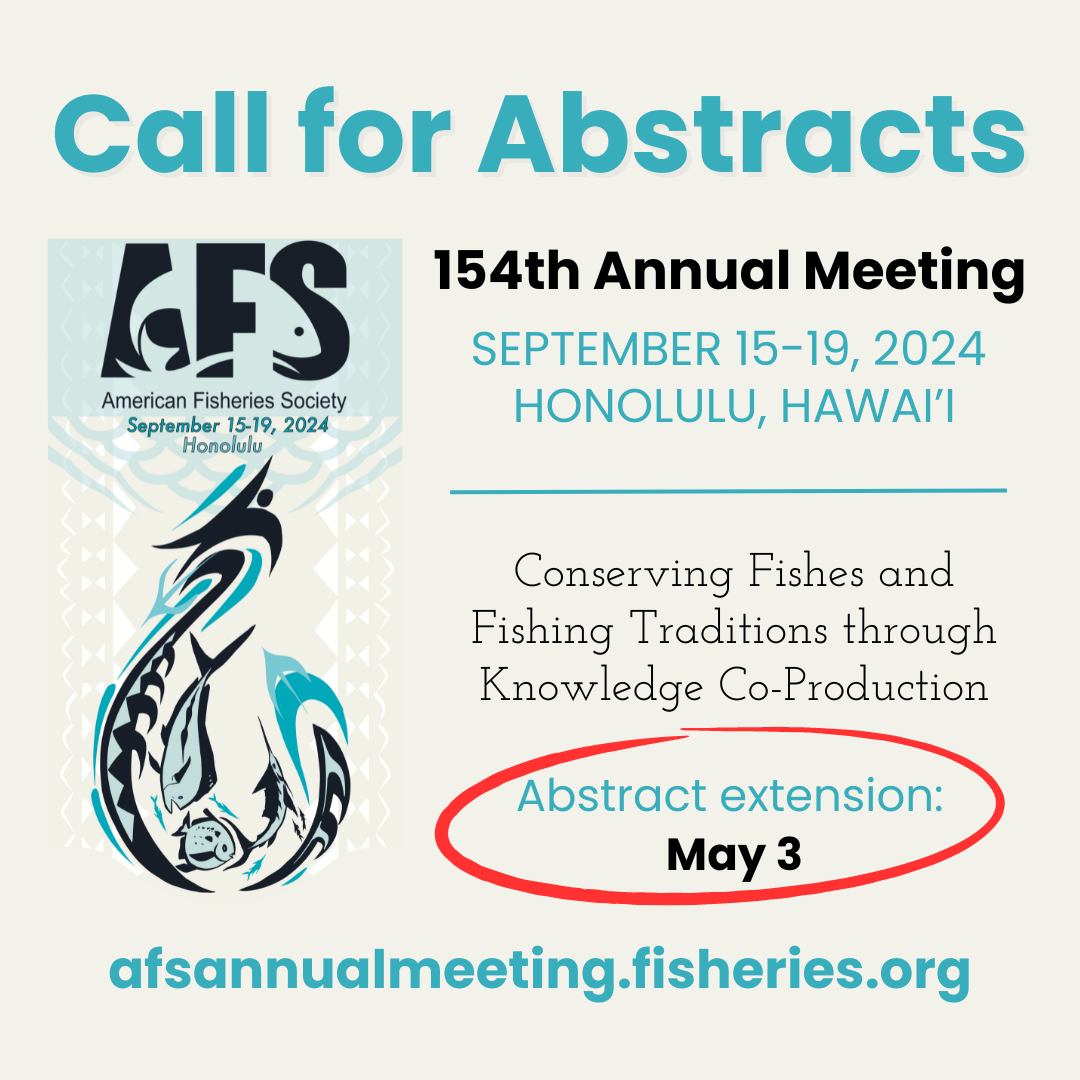Urban Streams Face Many Challenges but Rehabilitation Still Helpful
 For Immediate Release Contact: Beth Beard 22 January 2014 [email protected] 301-897-8616 x215 City life is hard on fish, according to a new pair of review papers in this month’s Fisheries, the magazine of the American Fisheries Society. A team of scientists, largely based in the Pacific Northwest, reviewed the many stressors of urban streams, along with the effectiveness of efforts to mitigate those stressors. “The water that flows from our cities has traces of birth control pills, radiation from medical practice, medical waste, caffeine, perfume, sunblock, deodorants, and disinfectants, all of which can alter fish physiology,” said Carl Schreck, a fish physiology professor in Oregon State University’s Department of Fisheries and Wildlife. The fate of urban fish and their habitats also affects urban people, particularly in terms of water quality, water management, and quality of life. “If you are concerned about the city in which you live and where your children play, you are advised to read these two articles,” said Bob Hughes of Amnis Opes Institute. The multiple stressors affecting urban streams—channelization, pollution, highly variable flows—have been dubbed “urban stream syndrome.” Other symptoms of the urban stream syndrome are stream channels that become incised with steep banks, a decline in the variety of species found, and disturbance-tolerant and alien species becoming more common. Fortunately, resource managers have several ways of combating the urban stream syndrome. Key techniques include replanting natural land cover, improving wastewater and stormwater management, recovering the hydrologic connection between the water and the land, and returning streams to more natural complexity. Almost all of the efforts that help improve urban fish habitat also help improve life for city residents as well; as water quality improves, fishing and swimming become safely possible, and stormwater management costs decline. However, recovery takes time and rehabilitation efforts must match the scale of the problem. The challenge is the growing scale of those problems, with over 50% of the world’s population living in cities, and trending higher. If historical patterns and climate changes continue, urban stream syndrome will claim more and more streams, resulting in even higher repair costs unless the effects can be prevented in the first place. The authors identify several research needs, including: ways to monitor multiple stressors, a better understanding of the effects of toxic chemicals and how to screen for them, how various types of impervious surfaces affect aquatic life, how urbanization affects aquatic life in different regions with different histories and natural environments, how urban surface and groundwater are connected, what the potential future effects of climate change will bring, and how well mitigation and low-impact development practices actually work. All of this will require government entities to collaborate more to maximize funding, mitigation and rehabilitation, and monitoring opportunities, the authors state. One key is collaborative watershed management. “For example, in Portland, Oregon, there are multiple bureaus working together on watershed issues. It’s a very integrated approach,” said co-author Alan Yeakley of the School of the Environment at Portland State University. Yeakley added, “We invite you to join us in thinking about approaches to reduce the impacts of urban areas on fish. Pristine conditions are not attainable, but urban stream rehabilitation is a worthy goal because appropriate actions improve the environments in which most of us live.” Kathleen Maas-Hebner, senior faculty research assistant in Oregon State University’s Department of Fisheries and Wildlife, emphasized some of the social aspects of rehabilitating urban waters. She stated, “Most cities have a ready supply of citizen scientist volunteers who love working on projects and helping to monitor aquatic resources.”
For Immediate Release Contact: Beth Beard 22 January 2014 [email protected] 301-897-8616 x215 City life is hard on fish, according to a new pair of review papers in this month’s Fisheries, the magazine of the American Fisheries Society. A team of scientists, largely based in the Pacific Northwest, reviewed the many stressors of urban streams, along with the effectiveness of efforts to mitigate those stressors. “The water that flows from our cities has traces of birth control pills, radiation from medical practice, medical waste, caffeine, perfume, sunblock, deodorants, and disinfectants, all of which can alter fish physiology,” said Carl Schreck, a fish physiology professor in Oregon State University’s Department of Fisheries and Wildlife. The fate of urban fish and their habitats also affects urban people, particularly in terms of water quality, water management, and quality of life. “If you are concerned about the city in which you live and where your children play, you are advised to read these two articles,” said Bob Hughes of Amnis Opes Institute. The multiple stressors affecting urban streams—channelization, pollution, highly variable flows—have been dubbed “urban stream syndrome.” Other symptoms of the urban stream syndrome are stream channels that become incised with steep banks, a decline in the variety of species found, and disturbance-tolerant and alien species becoming more common. Fortunately, resource managers have several ways of combating the urban stream syndrome. Key techniques include replanting natural land cover, improving wastewater and stormwater management, recovering the hydrologic connection between the water and the land, and returning streams to more natural complexity. Almost all of the efforts that help improve urban fish habitat also help improve life for city residents as well; as water quality improves, fishing and swimming become safely possible, and stormwater management costs decline. However, recovery takes time and rehabilitation efforts must match the scale of the problem. The challenge is the growing scale of those problems, with over 50% of the world’s population living in cities, and trending higher. If historical patterns and climate changes continue, urban stream syndrome will claim more and more streams, resulting in even higher repair costs unless the effects can be prevented in the first place. The authors identify several research needs, including: ways to monitor multiple stressors, a better understanding of the effects of toxic chemicals and how to screen for them, how various types of impervious surfaces affect aquatic life, how urbanization affects aquatic life in different regions with different histories and natural environments, how urban surface and groundwater are connected, what the potential future effects of climate change will bring, and how well mitigation and low-impact development practices actually work. All of this will require government entities to collaborate more to maximize funding, mitigation and rehabilitation, and monitoring opportunities, the authors state. One key is collaborative watershed management. “For example, in Portland, Oregon, there are multiple bureaus working together on watershed issues. It’s a very integrated approach,” said co-author Alan Yeakley of the School of the Environment at Portland State University. Yeakley added, “We invite you to join us in thinking about approaches to reduce the impacts of urban areas on fish. Pristine conditions are not attainable, but urban stream rehabilitation is a worthy goal because appropriate actions improve the environments in which most of us live.” Kathleen Maas-Hebner, senior faculty research assistant in Oregon State University’s Department of Fisheries and Wildlife, emphasized some of the social aspects of rehabilitating urban waters. She stated, “Most cities have a ready supply of citizen scientist volunteers who love working on projects and helping to monitor aquatic resources.”
- A Review of Urban Water Body Challenges and Approaches: (1) Rehabilitation and Remediation, by Robert M. Hughes, Susie Dunham, Kathleen G. Maas-Hebner, J. Alan Yeakley, Carl Schreck, Michael Harte, Nancy Molina, Clinton C. Shock, Victor W. Kaczynski, and Jeff Schaeffer. Fisheries 39(1): 18-29.
- A Review of Urban Water Body Challenges and Approaches: (2) Mitigating Effects of Future Urbanization, by Robert M. Hughes, Susie Dunham, Kathleen G. Maas-Hebner, J. Alan Yeakley, Michael Harte, Nancy Molina, Clinton C. Shock, and Victor W. Kaczynski. Fisheries 39(1): 30-40.
# # # Founded in 1870, the American Fisheries Society (AFS) is the world’s oldest and largest fisheries science society. The mission of AFS is to improve the conservation and sustainability of fishery resources and aquatic ecosystems by advancing fisheries and aquatic science and promoting the development of fisheries professionals. With five journals and numerous books and conferences, AFS is the leading source of fisheries science information in North America and around the world.






